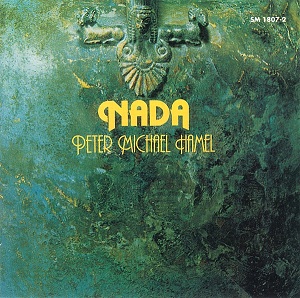
Perotinus Magnus, was a composer from around the late 12th century, associated with the Notre Dame school of polyphony in Paris and the ars antiqua musical style. The title Magister Perotinus, means that he was licensed to teach. The only information on his life with any degree of certainty comes from an anonymous English student at Notre Dame known as Anonymous IV. It is assumed that he was French and named Pérotin, a diminutive of Peter, but attempts to match him with persons in other documents remain speculative.
Organum is, in general, a plainchant melody with at least one added voice to enhance the harmony, developed in the Middle Ages. Depending on the mode and form of the chant, a supporting bass line may be sung on the same text, the melody may be followed in parallel motion, or a combination of both of these techniques may be employed. As no real independent second voice exists, this is a form of heterophony. In its earliest stages, organum involved two musical voices: a Gregorian chant melody, and the same melody transposed by a consonant interval, usually a perfect fifth or fourth. In these cases the composition often began and ended on a unison, the added voice keeping to the initial tone until the first part has reached a fifth or fourth, from where both voices proceeded in parallel harmony, with the reverse process at the end. Organum was originally improvised; while one singer performed a notated melody, another singer—singing "by ear"—provided the unnotated second melody. Over time, composers began to write added parts that were not just simple transpositions, thus creating true polyphony.
Léonin was the first known significant composer of polyphonic organum. He was probably French, probably lived and worked in Paris at the Notre Dame Cathedral and was the earliest member of the Notre Dame school of polyphony and the ars antiqua style who is known by name. The name Léonin is derived from "Leoninus," which is the Latin diminutive of the name Leo; therefore it is likely that Léonin's given French name was Léo.

The Novum Organum, fully Novum Organum, sive indicia vera de Interpretationes Naturae, is a philosophical work by Francis Bacon, written in Latin and published in 1620. The title is a reference to Aristotle's work Organon, which was his treatise on logic and syllogism. In Novum Organum, Bacon details a new system of logic he believes to be superior to the old ways of syllogism. This is now known as the Baconian method.
Discant or descant originated as a style of liturgical setting in the Middle Ages, associated with the development of the Notre Dame school of polyphony.

Colbert Michael Hamels is an American professional baseball pitcher for the Chicago Cubs of Major League Baseball (MLB). He previously played for the Philadelphia Phillies from 2006 to 2015, and the Texas Rangers from 2015 to 2018.
David Jackman is a British musician and visual artist with an extensive catalogue of drone works, mostly as the principal — and often sole — member of Organum.

Aschau im Chiemgau is a municipality in the district of Rosenheim in Bavaria in Germany.

Le Hamel is a commune in the Somme department and Hauts-de-France region of northern France.
The Good Friday Massacre , was a second-round playoff match-up during the 1984 Stanley Cup playoffs. The game occurred on Good Friday, April 20, 1984 in Montreal, Quebec, Canada, between the Quebec Nordiques and the Montreal Canadiens. It is notable less for its series-ending finish than its epic brawl between the players, which spanned multiple periods and resulted in 11 ejections and 252 penalty minutes.
Idola tribus is a category of logical fallacy, normally translated as "Idols of the Tribe", which refers to a tendency of human nature to prefer certain types of incorrect conclusions. It is a Latin term, coined by Sir Francis Bacon and used in his Novum Organum, one of the earliest treatises arguing the case for the methodical approach of modern science.

Colours of Time is the sixth album of composer Peter Michael Hamel, released in 1980 through Kuckuck Schallplatten.

Bardo is the seventh album of composer Peter Michael Hamel, released in 1981 through Kuckuck Schallplatten.

Transition is the eighth album of composer Peter Michael Hamel, released in 1983 through Kuckuck Schallplatten.

Let It Play: Selected Pieces 1979–1983 is a compilation by composer Peter Michael Hamel, released in 1987 through Kuckuck Schallplatten. In addition to two unreleased pieces, Let It Play comprises pieces from his albums Colours of Time, Bardo, and Transition.

Arrow of Time/The Cycle of Time is the tenth album of composer Peter Michael Hamel, released in 1991 through Kuckuck Schallplatten.

Nada is the fifth album of composer Peter Michael Hamel, released in 1977 through WERGO.
Peter Hamel (1911–1979) was a German screenwriter and a director of film and television. He appeared as himself in the 1948 comedy Film Without a Title. He is the father of the composer Peter Michael Hamel.














